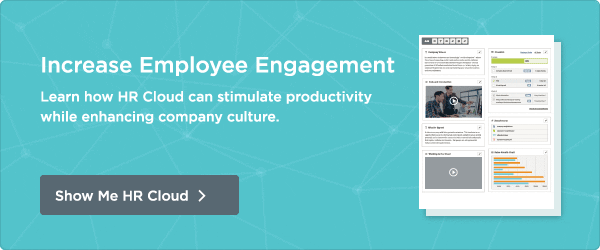Lying dormant inside the managers of Millennials is a super power that HR needs to know about. It’s one that encourages leaps and bounds in productivity across a team. What is this super power?
It’s the power to save time while unleashing productivity. You were expecting some kind of ancient secret, right? Unfortunately, this super power does lie in wait like a secret of old, because there are far too many managers who are not bold enough to seize it.
Today’s culture is motivated by instant results. Most won’t even wait a few seconds for a webpage to load. Millennials are no different. They were born into this hyper-responsive, digital age.
Therefore, it makes perfect sense that Millennials yearn for instant and consistent feedback, not only in the social network world, but in the workplace, too.
It would seem as though this type of feedback—instant and consistent—thrives in the digital arena, but would not do so well in real work environments. Or, would it?
The only feedback Baby Boomers need is the elusive presence of their manager. The less they see of the boss the better.
Millennials aren’t wired that way. They’re looking for consistent interaction from their manager. If they don’t get it, they’re likely to assume something is wrong and will be searching for a new job on LinkedIn by lunchtime.
This seemingly new instant and consistent feedback isn’t right or wrong. It’s just not what most are used to seeing in the workplace.
When I first started sharing this concept with my live audiences, I would hear things like, “Ryan, I can hardly stay afloat. I don’t have time to baby Millennials.”
I completely understand this position. Though, I don’t believe lack of time is the issue.
A Different Mindset
The hesitation is most likely related to the changes that need to happen in a manager’s mindset.
For many HR professionals, traditional practices reserve feedback for quarterly and yearly reviews. These were sufficient for a time, but the feedback process must evolve in order to engage the next generation worker.
If these traditional practices continue without any inclusion of new feedback ideas, churn rates of Millennials will make managers wish they would’ve adapted.
Taking a short moment to provide Millennials with feedback from a recent occurrence will have them working harder than you ever thought possible. The time you spend really can be as short as the time it takes to click the “Like” button on a Facebook post.
For instance, “Ryan, you did a great job on project XYZ. Your attention to detail really impressed our clients. Keep it up!” That leaves the Millennial’s brain full of happy which, in turn, makes him/her focus all the more and work even harder.
An audience member recently shared a story with me about how this type of Facebook “Like" engagement works for him.
Before this manager drove home from work, he sat in his parked car and took a few minutes to send his team of Millennials a text message. The text included direction or correction surrounding a specific task or project. Then, he told me that he got a nice surprise later that night. The same Millennials he messaged earlier stayed late to continue working on the project. All of this happened because he took a short moment to acknowledge their work and provide real-time feedback.
The HR professionals of today have a choice. They can grunt about Millennials needing constant feedback, or they can leverage that desire for feedback and unlock a competitive advantage super power.
It’s time to power-up with likable engagement.
Keep Reading
Balancing Technology and the Human Touch in Employee Engagement
Companies are taking employee engagement very seriously because it is one of the ways of
Remote Onboarding Success Stories
When it comes to onboarding new hires, many companies understand the value and benefits

